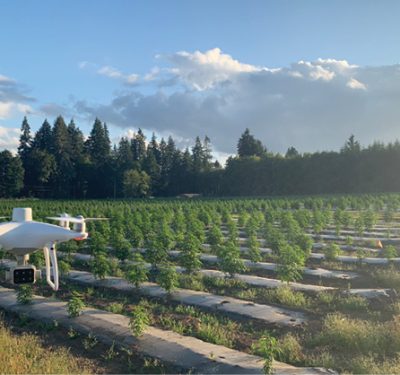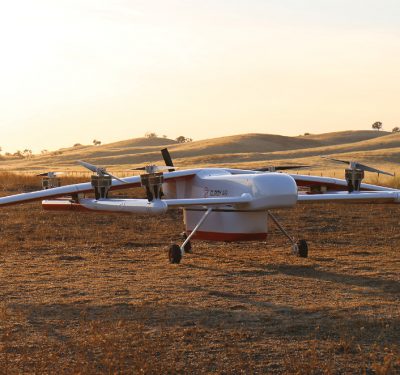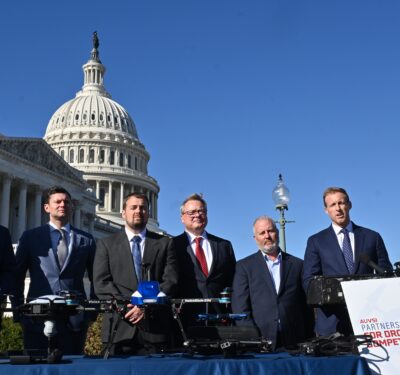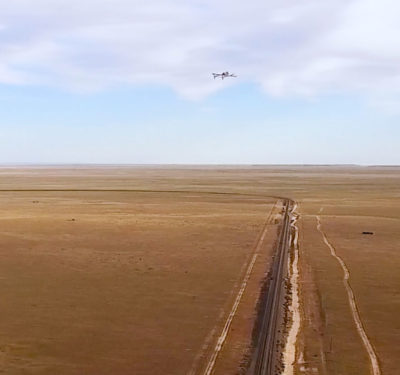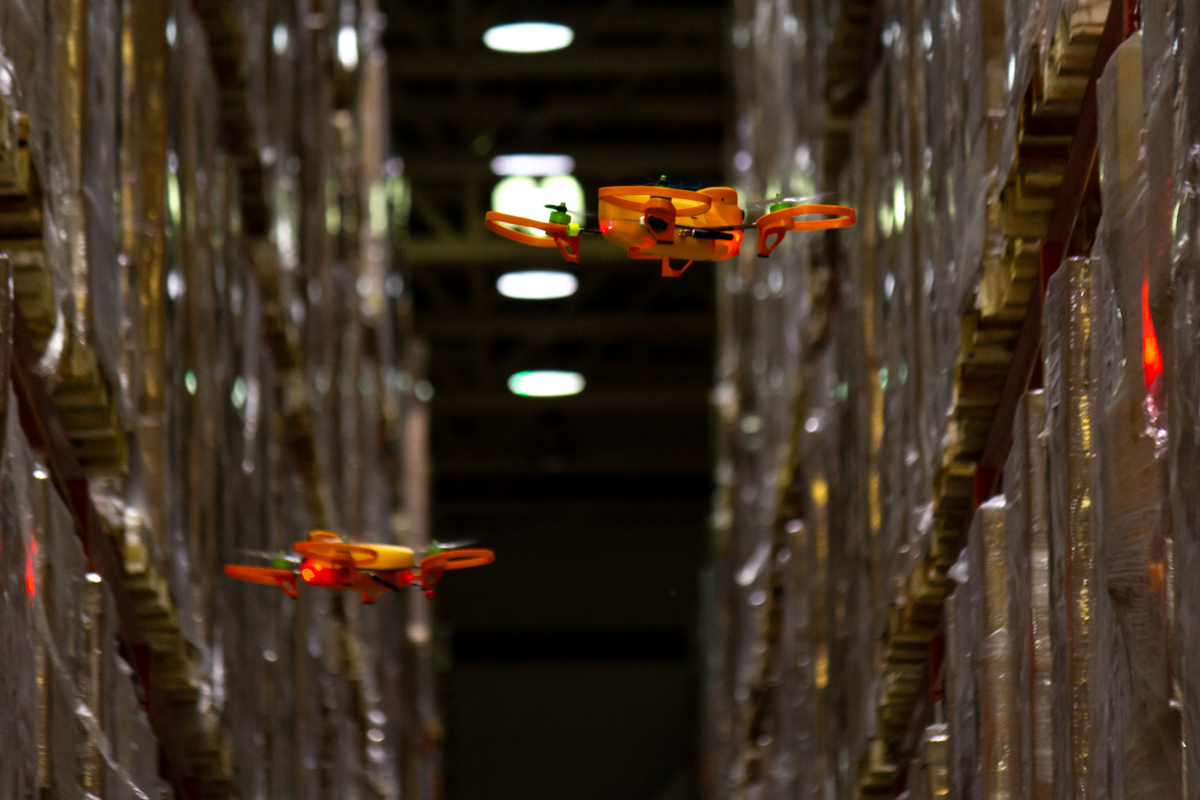
UVL Robotics’ warehouse inventory drones can scan pallets in 2-5 seconds, reducing a chore of several days to an hour. (UVL robotics)
Like many companies, UVL Robotics began with a problem: Eugene Grankin hated stock-taking. When he worked in logistics for Royal Dutch Shell’s European operations, accounting for 10,000 pallets in a typical warehouse might take 50 hazardous worker-hours and three days to complete – provided nobody got distracted. When that happened, they would sometimes have to start all over again. “[I]t’s a tedious process,” he recalled.
In 2012, while still at Shell, it occurred to Grankin that specially equipped drones might be able to do this chore, but he couldn’t find one on the market. Eventually, in 2018, he joined forces with a young engineering student, Daniel Velovaty, now the CTO, and Moosa Al Balushi, a logistics expert formerly with the ASYAD logistics service in Muscat, Oman, to create the missing tool.
In 2018 and 2019, Grankin and his team raised seed capital and developed a prototype, and in 2020, they went to market as UVL Robotics (the initials stand for Unmanned Vehicle for Logistics), with a drone designed to conduct warehouse inventory at high speed.
Three days to one hour
A swarm of ten UVL drones can knock off the tedious, three-day inventory Grankin once dreaded in about an hour and do it 50 times faster and for a tenth of the cost of human workers.
Not surprisingly, a number of companies have liked the sound of that. So far, UVL has attracted 40 customers across seven countries, including such logistics heavy hitters as Kuhne +Nagel, Pepsico, and KraftHeinz. To date, the company’s drones have scanned more than 2.1 million pallets.
The system is designed to allow customers to outsource the task entirely. UVL just asks the client to send a map of the warehouse, the numbers of the barcodes that need to be scanned, and the form in which the data should be delivered.
Once scanning is complete, the client gets data on the entire warehouse stock, including notifications about pallets that lacked codes and pallets that were missing. No pallet is overlooked: the drone is programmed to account for every space. If for some reason the drone can’t make a decision, it hovers in the same spot and won’t continue to advance.
Pricing is equally simple: per pallet, including empty addresses.
This ease of use took some time to achieve. UVL engineers had to develop an indoor navigation system that could operate without access to GPS or Wi-Fi; a collision avoidance system; a machine-learning capability trained to spot and scan bar codes; and a portable server, a ground station to which the data could be downloaded.
In the end, as they couldn’t find off-the-shelf hardware and software that could provide all that functionality, Grankin & Co. developed both the hardware and software themselves, financed with $3.5 million in venture capital and angel funding, raised over two rounds.
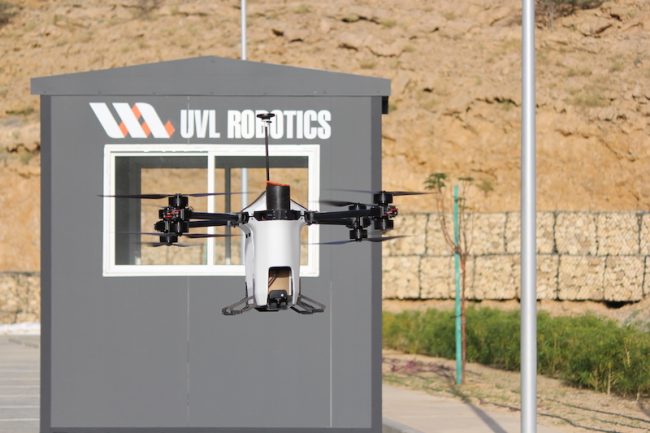
UVL Robotics tests its last mile delivery system in Oman.
First steps of the last mile
Now UVL engineers are trying to tackle another one of the logistics’ world’s biggest headaches: last mile delivery. Grankin, in a video interview from Abu Dhabi, said his team is currently testing a drone delivery system in Oman and the United Arab Emirates.
In February, Grankin signed a memorandum of understanding with representatives of the Sultanate of Oman, to start a drone-based delivery service to serve more than 6,000 citizens in hard-to-reach areas of Muscat. The project will include ground landing, smart parcel lockers, and a rope-dropping system. It can deliver 6.5-pound payloads up to 25 miles, according to a recent press release. During the first quarter, they also signed three commercial drone delivery contracts with local food service and e-commerce clients that UVL executives say could be worth $1.5+ million in annual revenue.
Company executives say they chose Oman a test market because the regulators and customers were ready for the new technologies. In addition, the country’s hot climate and rugged landscape make traditional delivery by car or courier problematic.
Although some of the firm’s backers are Russian funds and its research center is located in the Commonwealth of Independent States, Grankin does not see any danger of service disruption on account of the economic sanctions being slapped on Russian trade in response to the government’s recent invasion of Ukraine. UVL’s headquarters are in Menlo Park, CA., and it maintains offices in Europe and the Middle East. “I am a technology entrepreneur and we are a global company,” Grankin said.


